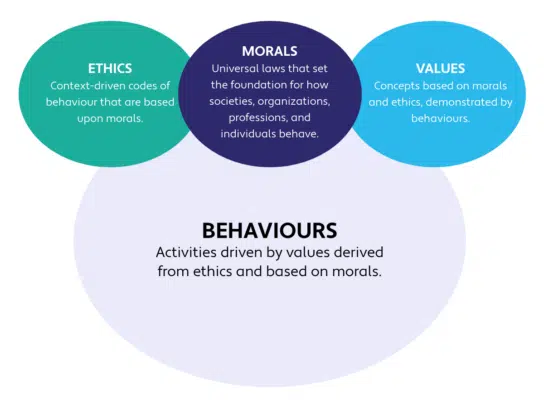Morals are social laws that set the foundation for how a society should work and how its people should behave. They are the “guardians of social order.” Morals play a major role in how we navigate our lives and relationships.
There are unique sets of morals for different groups of people. These sets include the legal, societal, cultural, familial, and individual rules that influence our behaviours.1
Moral principles are so important our society writes its policies in response to them.
Within healthcare, one moral principle is to do no harm. This sets the tone for how HCPs should behave on the job. (Think about your own organization’s code of ethics. It likely includes some variation of do no harm as a central message.)
Values also guide our behaviours. Unlike morals, values are specific to the individual. They can be standards like loyalty or courage or compassion.
One way to think about values is that they’re often how we describe ourselves, such as, “I am a kind and caring person.” Combined, our morals, ethics, and values help us make choices and drive our behaviours. Whenever one (or more) of them is violated, that causes pain and can even impact who we are.

